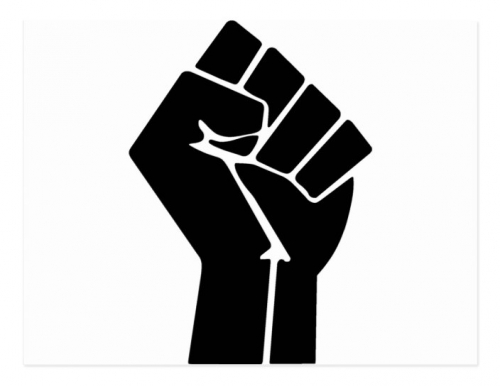Dear all,

The recent killings of George Floyd, Breonna Taylor, Ahmaud Arbery, Tony McDade, and countless others has kicked off national conversations about antiblack racism in America. Across the country, and in the state of Maine, citizens are daily exercising their constitutional right to assemble, to protest, and to demonstrate solidarity with black and brown Americans in the fight for justice, dignity, and equal treatment. President Cummings recently issued a statement that included: “USM stands with those committed to dismantling racial inequities. Racism not only limits — it also kills. To stand silent in this moment is to stand with racism. Please stand as an anti-racist with USM.”
In these urgent times, it can be daunting to ask oneself, “what can I do?” I’m writing this letter to Honors students, faculty, and staff in the spirit of shared inquiry and solidarity.
An important part of the work of dismantling racism is self-education. As Ibrahm X. Kendi teaches us, becoming antiracist begins with the self: “the movement from racist to antiracist is always ongoing–it requires understanding and snubbing racism based on biology, ethnicity, body, culture, behavior, color, space, and class. And beyond that, it means standing ready to fight at racism’s intersections with other bigotries” (10). You, too, can engage in this work.
If you’re looking for ways to get involved, I wrote a letter for the USM Foundation that includes interactive challenges, films, shows, podcasts, social media accounts to follow, places to donate your time and/or money, etc. You can check it out here.
If you are eager to work on antiracist advocacy and scholarship in an Honors context, I encourage you to join the National Society for Minorities in Honors and the National Association of African American Honors Programs (I am a member of both organizations and can vouch for their excellence). The National Society for Minorities in Honors is hosting a Free Online Conference on October 22-23, which is a great opportunity to engage with students, faculty, and staff from across the country who are invested in this work. More information is available here: http://www.nsfmih.org/
In closing, I want to emphasize that this work isn’t about checking off a task on your to do list or achieving an antiracist badge. The goal is to become an ally. If you’re white, do the work yourself. Don’t ask people of color to do it for you. Don’t be afraid to make mistakes. Mistakes are inevitable, and they are also how we learn, grow, and change for the better. As Ijeoma Oluo writes, “The beauty of anti-racism is that you don’t have to pretend to be free of racism to be an anti-racist. Anti-racism is the commitment to fight racism wherever you find it, including in yourself. And it’s the only way forward.”
As always, I welcome the opportunity to extend this conversation. Please do not hesitate to reach out to me or to any of your Honors faculty at any time.
All best,
Rebecca Nisetich, Ph.D., Honors Program Director & Assistant Professor

